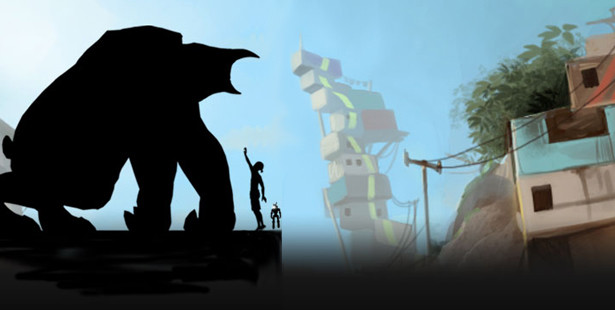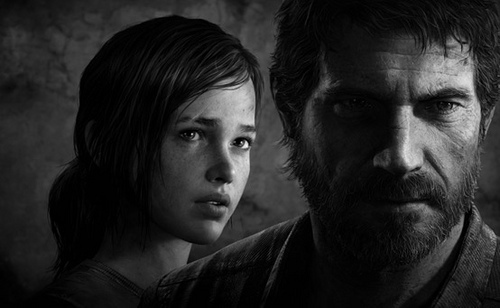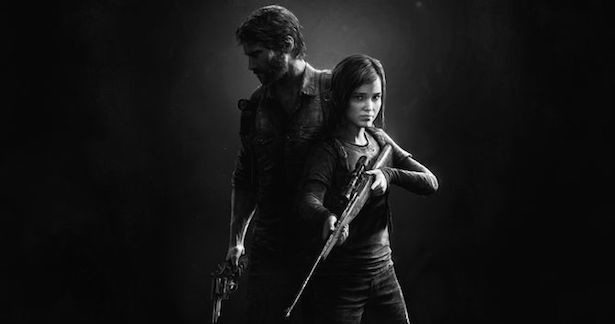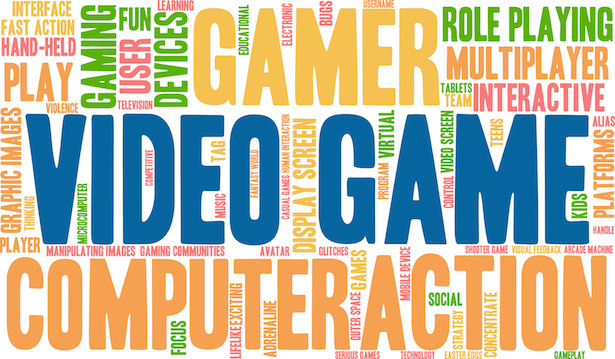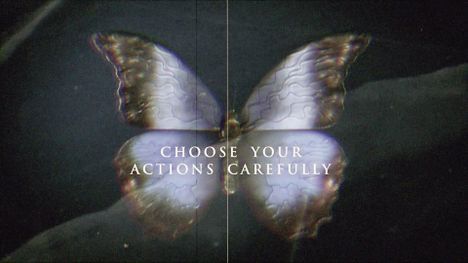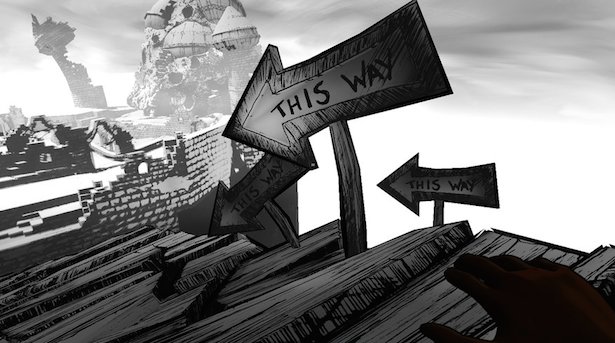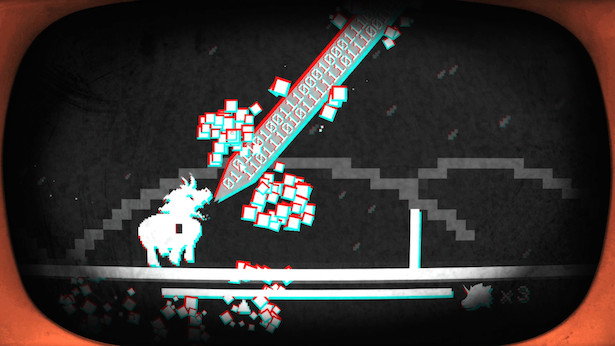I’ve been catching up on a lot of reading this summer, and much of what I’ve been reading engages with the complexities of family structures and kinship ties. From Dorothy Allison’s Bastard out of Carolina to Suzan-Lori Parks’s Getting Mother’s Body, from Ruth Ozeki’s My Year of Meats to Toni Morrison’s […]
Bianca Batti
I played Papo & Yo recently, and, as a result, I’ve been thinking a lot about the game’s representation of monstrosity, abuse, and childhood trauma. Sam’s already written about the game’s representation of such things, and she’s noted that the game takes place in an imaginary world in which a young […]
A couple months ago, I wrote a post in which I began thinking through some of the implications Laura Mulvey’s theory of the male gaze might have for the ways we think about video games—that is, how it is the gaze might impact the ways we play. I’ve been thinking […]
The past few weeks, I’ve been writing a lot about representations of fatherhood and daughterhood, and my preoccupation with such representations stems from my interest in the ways family structures are manifested in game narratives. This week, my mind has turned from parent-child relationships and toward sibling relationships and how […]
The past couple weeks, I’ve written about patriarchal constructions of fathers and daughters in The Last of Us and Rise of the Tomb Raider, and I wanted to spend some time this week wrapping up these assorted musings. My last two posts have worked to put these two games in […]
Last week, I wrote about patriarchal constructions of fatherhood and daughterhood in The Last of Us, and I want to continue in that vein this week as well. To extend this line of thinking, I want to examine how it is such constructions come to be repeated across gaming narratives. […]
A few weeks ago, I wrote about the gendered labor that’s represented in The Last of Us, and since then, I’ve been thinking a lot more about the implications of the game’s representation of gendered family structures. Gerald Voorhees talks about The Last of Us’s representation of “paternal masculinity” as […]
I’m taking a course right now in which we’re examining the dominant affects of modernist and postmodern literature, and as a result, I’ve been thinking a lot about the dominant affects of alienation and paranoia and how such ideas might be made manifest in the realm of video games. The […]
I recently revisited The Last of Us, and after (re)playing the game, I’ve been thinking a lot about the idea of gendered labor and the manner in which such labor comes to be represented. Indeed, the game’s depiction of fatherhood has been discussed quite a bit, especially when the game was […]
A new Tropes vs. Women in Video Games episode came out earlier this month, this one specifically on body language and the male gaze. In this episode, Sarkeesian focuses especially on the notion of movement as something that “can be a powerful thing” because movement can sometimes “tell us the most […]
I recently came across an article entitled “Between the Lines: Games and Diegesis,” in which Ian McCamant interrogates the manner in which games tell stories and the manner in which they tell stories differently than literature or film. And since these are subjects I usually find myself engaging with, McCamant’s […]
Last week, around the same time that I started playing Anatomy, my sister turned me onto The Black Tapes Podcast, and, as a result, I’ve been thinking a lot about the game and the podcast concurrently. As Gavia Baker-Whitelaw puts it, The Black Tapes Podcast is framed “as a Serial-esque series hosted by […]
My vision is pretty bad, and it’s been pretty bad since the fourth grade. My night vision is even worse. I have heard optometrists utter “whoa” during appointments (which, in my opinion, is never a great thing to hear a doctor say). That Twilight Zone episode in which the guy’s glasses […]
I’ve been writing a lot the past couple weeks about metanarrativity and postmodernism, about how such things manifest themselves in games like The Magic Circle, like Until Dawn, like Pony Island. And I hope you’ll bear with me while I indulge myself in expanding on some of these ideas a […]
Last week, I wrote about a game called Pony Island and the manner in which the game makes use of metanarrativity. And I also mentioned that my interest in such a narrative technique stems from my location as a literary studies scholar—an interest that has extended my consideration of such […]
I recently came across a game called Pony Island, and what has struck me about this game is the fact that it makes use of the idea of metanarrative in the ways it asks us to play it. And as a literary studies scholar, one whose research occasionally focuses on […]


